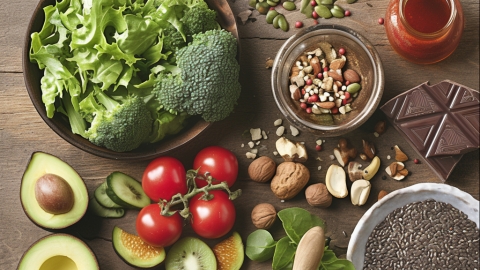What Foods Should Patients with Hyperthyroidism Avoid?
Hyperthyroidism generally refers to hyperfunction of the thyroid gland. Normally, there is no specific food that patients with hyperthyroidism absolutely need to avoid. However, it is generally not recommended for patients with hyperthyroidism to consume foods such as kelp, nori, sea shrimp, iodized soy sauce, and high-iodine supplements, as these may cause adverse reactions. The specific reasons are as follows:

1. Kelp: This high-iodine seafood contains extremely high levels of iodine. Excessive consumption may accelerate thyroid hormone synthesis and worsen hyperthyroidism symptoms, leading to increased metabolic disturbances.
2. Nori: As a type of seaweed, it is rich in iodine. Consumption may lead to accumulation of iodine in the body, stimulating the thyroid gland to secrete more hormones, which is detrimental to the stability and control of the condition.
3. Sea shrimp: Living in seawater, these accumulate higher levels of iodine. Consumption increases iodine intake in the body, promoting elevated thyroid hormone levels and worsening symptoms such as palpitations and excessive sweating.
4. Iodized soy sauce: Iodine is added during the manufacturing process. Long-term and excessive use may lead to excessive iodine intake, interfering with thyroid function regulation and affecting treatment outcomes.
5. High-iodine supplements: For example, nutritional supplements with high iodine content. Additional intake may disrupt the body's iodine balance, potentially causing abnormal thyroid hormone secretion and exacerbating hyperthyroidism.
Patients with hyperthyroidism must strictly control iodine intake, choose iodine-free salt, consume more low-iodine foods such as fresh vegetables, grains, and freshwater fish, and have regular follow-up tests of thyroid function to adjust their diet based on the results.




